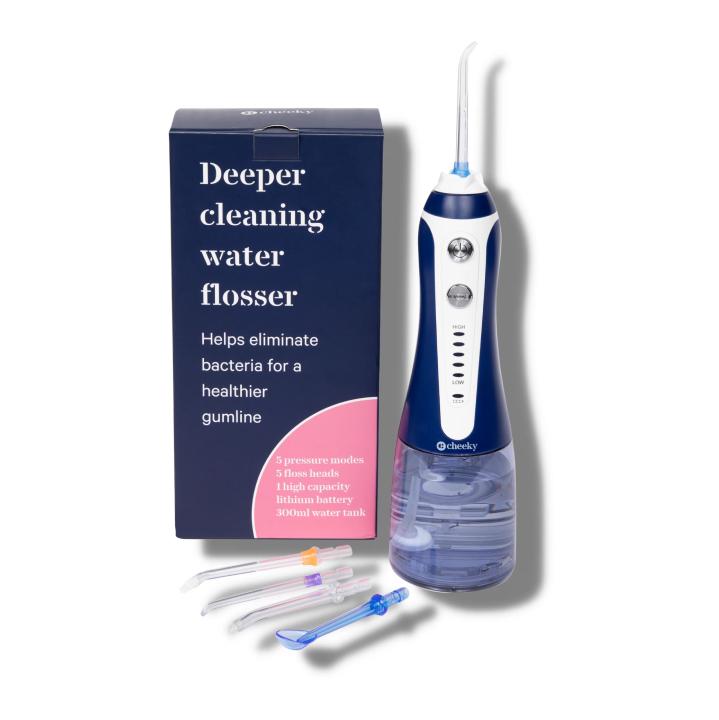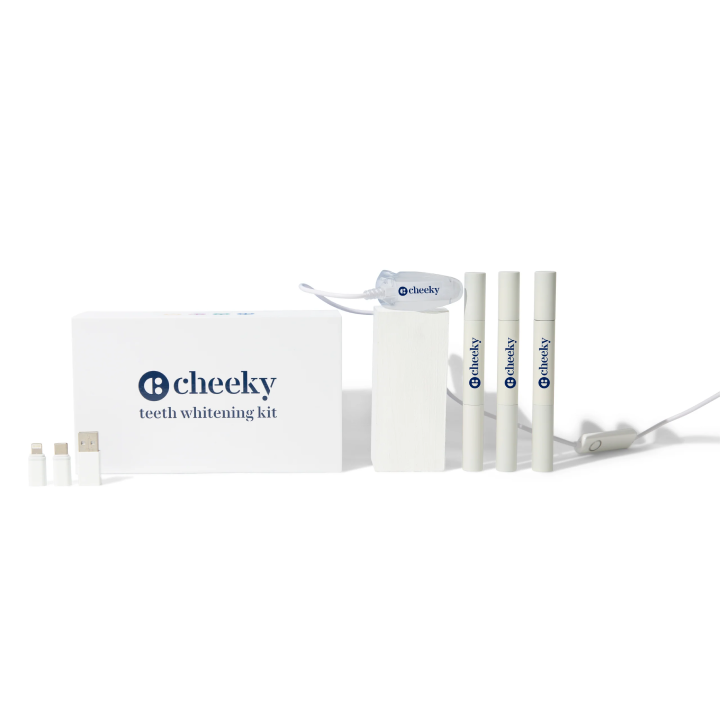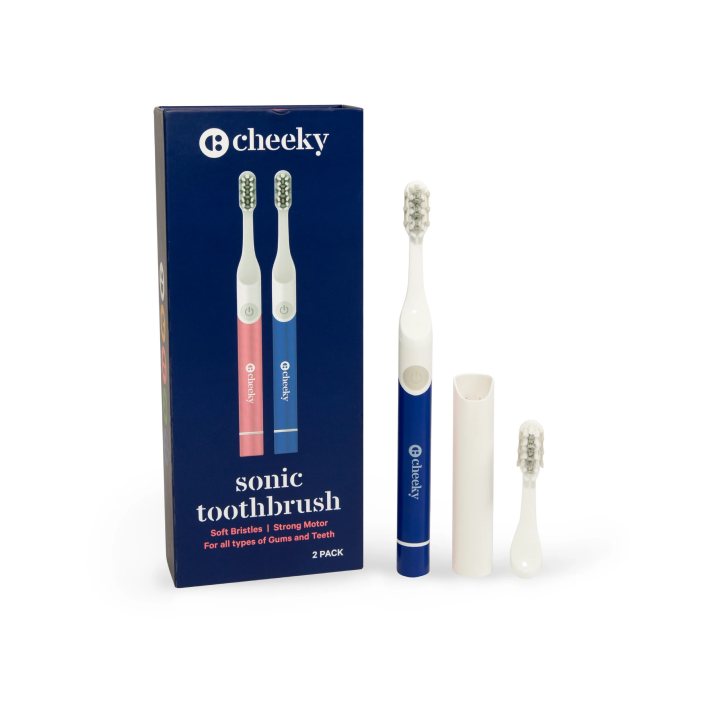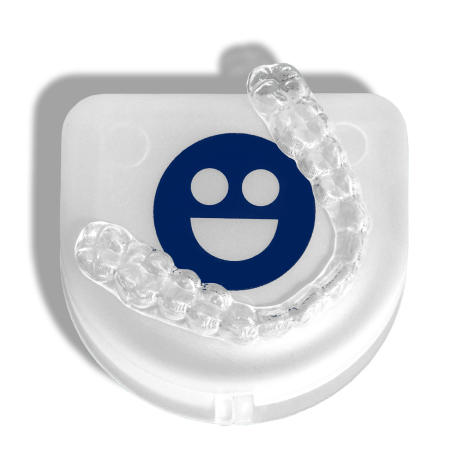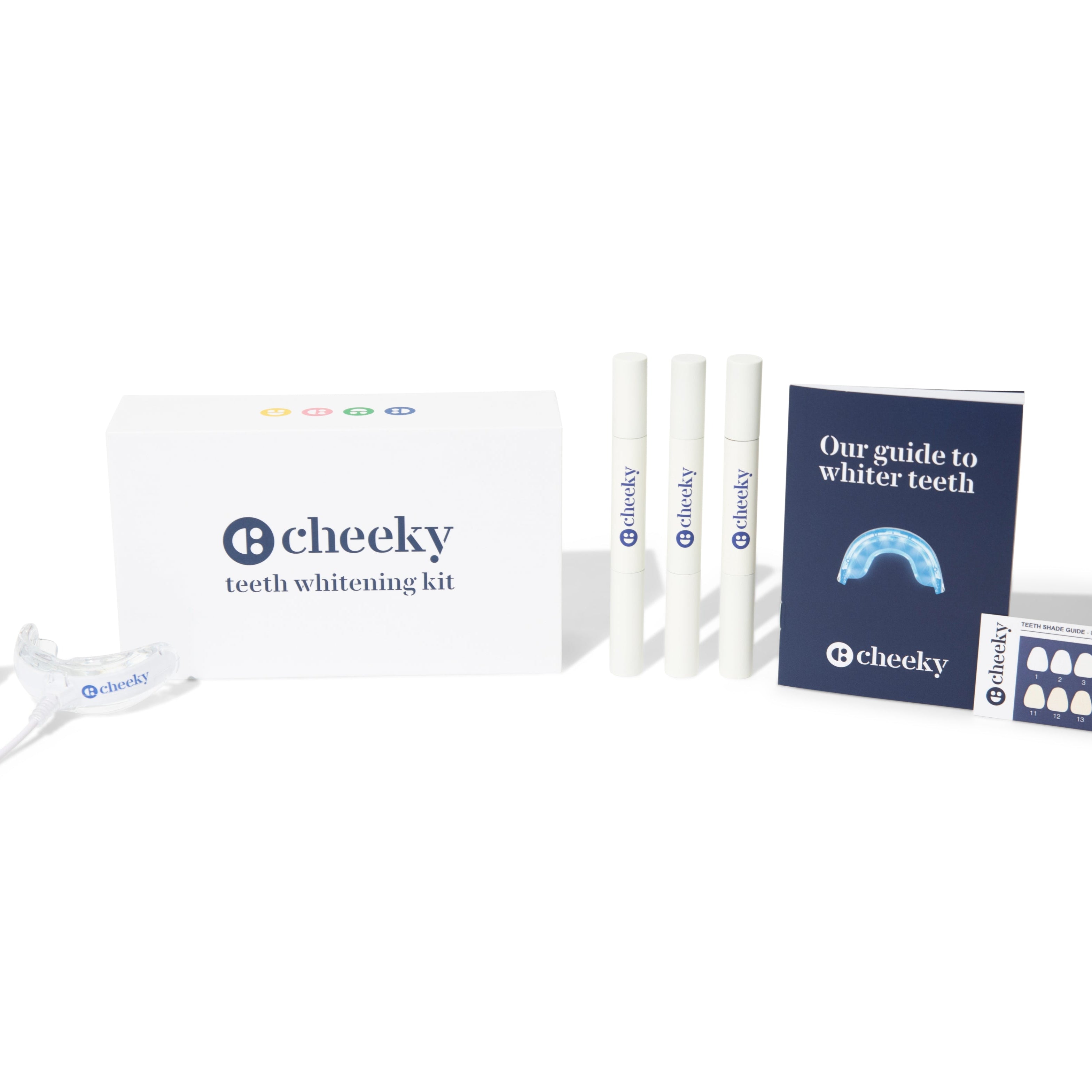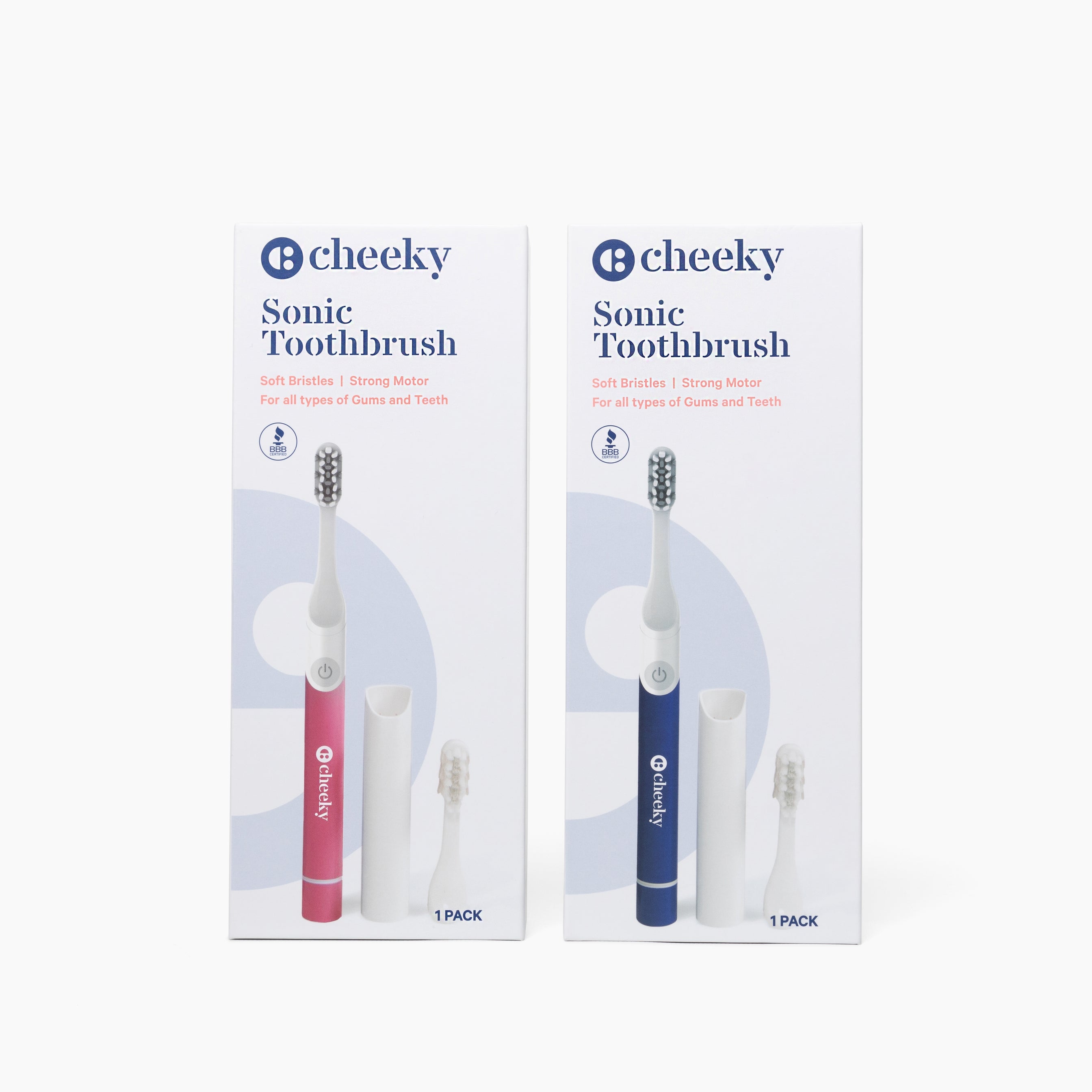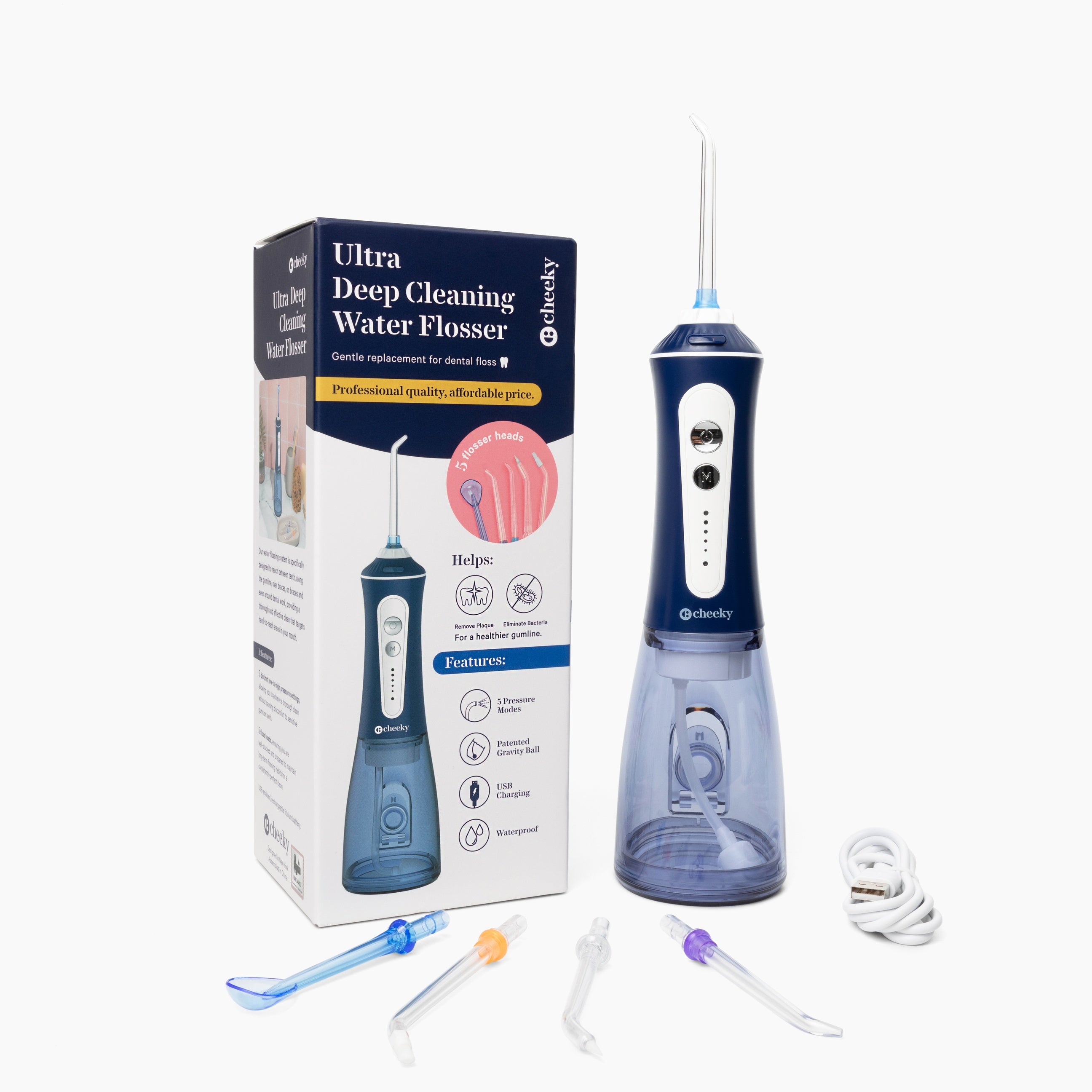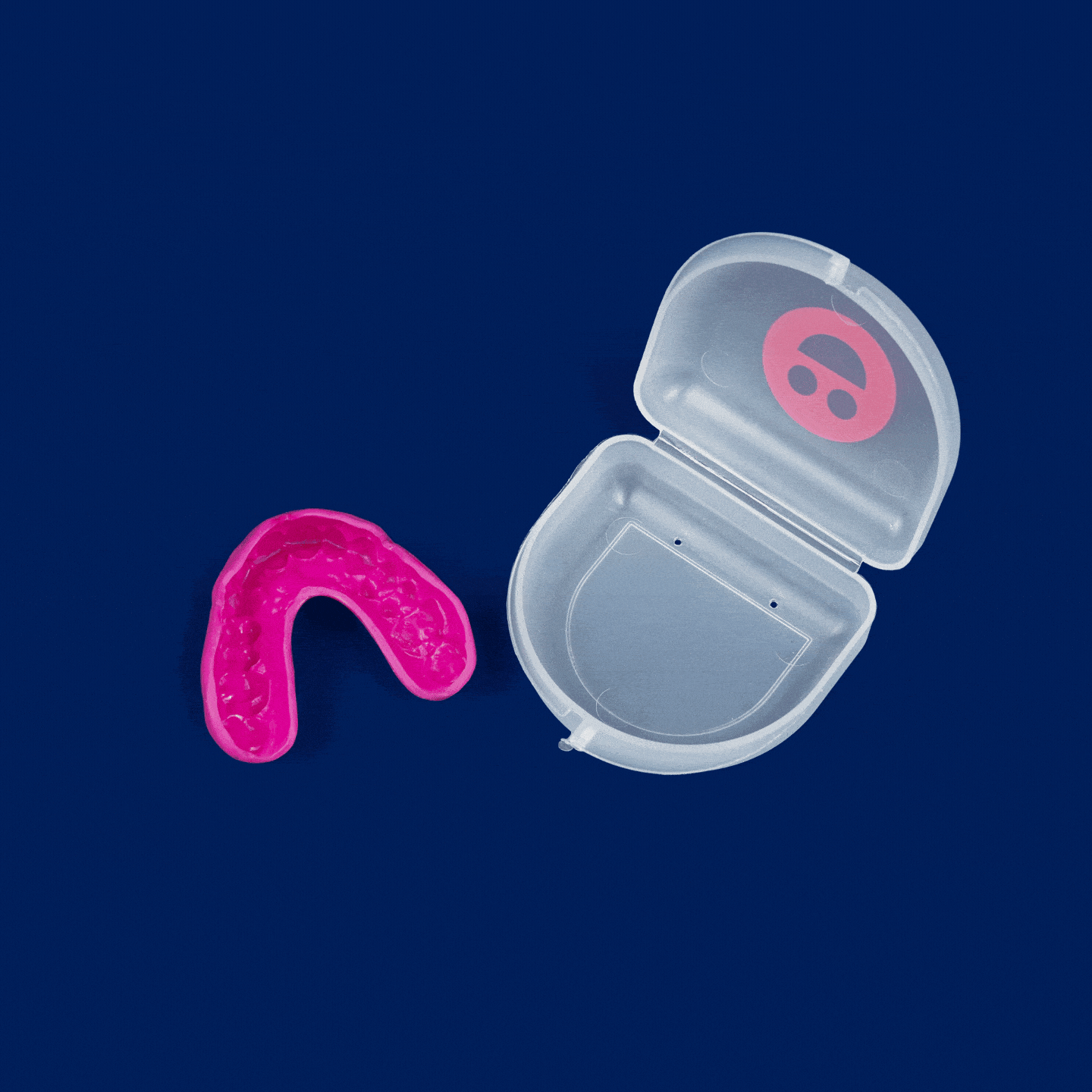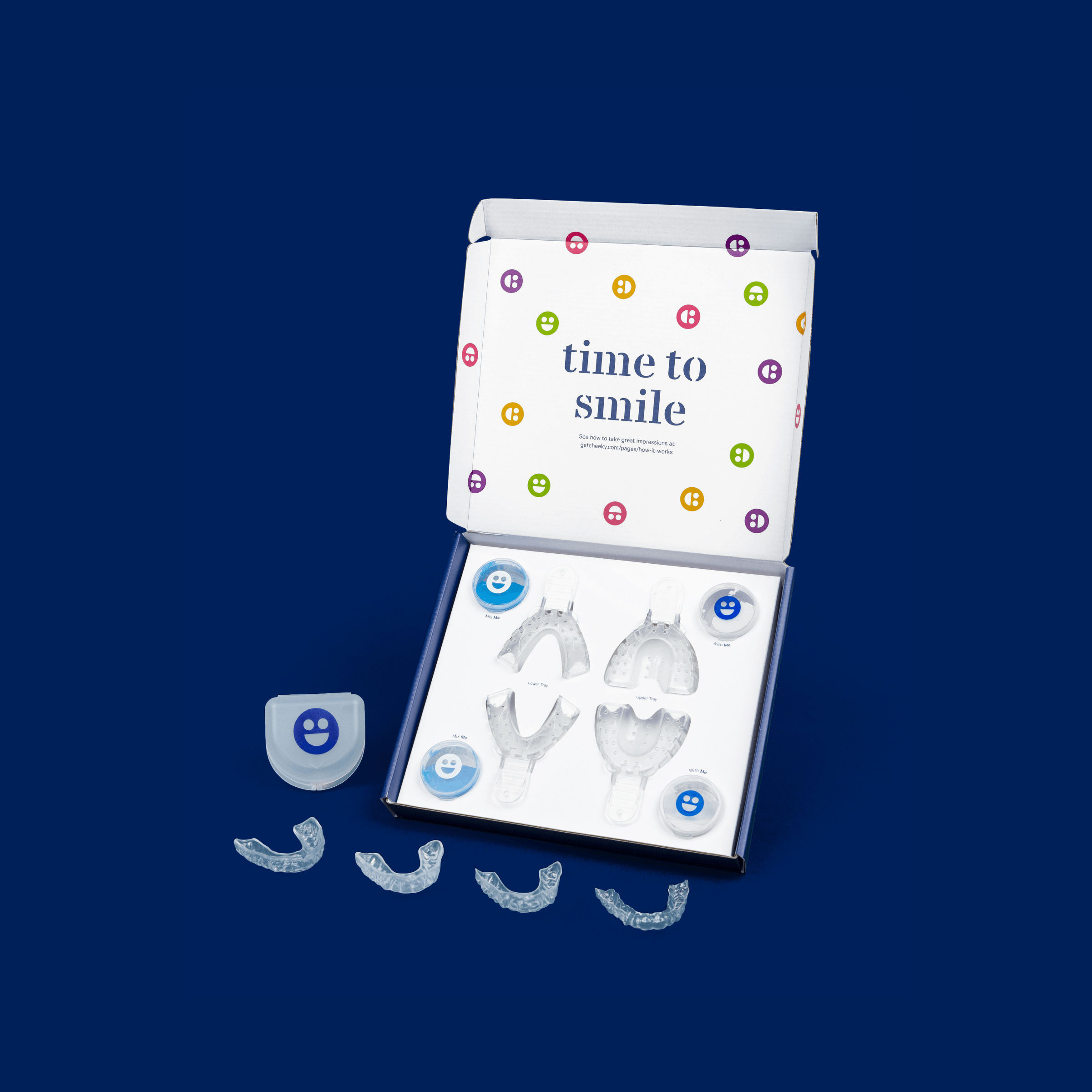For your oral hygiene, you may have already thought about getting a water flosser.
For people with malocclusion teeth, an Orthodontic will recommend braces. And a water flosser is now the only thing that can truly clean braces, especially when food particles get stuck.
Although it doesn't take much less time to use water flossing, they are simpler, won't harm your gums, and won't result in bleeding.
The longer plaque and tartar are left on the teeth, the more damaging they are. Gum disease starts with gingivitis, an inflammation of the gums brought on by bacteria. If gingivitis is left untreated, it progresses to periodontitis, where the gums can infect and peel away from the teeth. The infection can spread to the bone when bacteria penetrate below the gum line.
To avoid that, one of the best methods is flossing after brushing your teeth.
What Is Water Flossing?
A water flosser is a portable tool that squirts clean water between your teeth to flush out plaque and food particles. The flosser tool frequently attaches to a water tank that you can top off as necessary.
For those who struggle with manual flossing, water flossers can be a great alternative to traditional flossing. In addition, water flossers might help you keep your teeth clean if you've had dental procedures like braces or bridges that make it difficult for you to floss.
The removal of food particles from your teeth with a water flosser can potentially lessen bleeding and gum disease, but it isn't typically viewed as a replacement for brushing and flossing. Although it typically leaves visible film and plaque on your teeth unattended, it can help reduce bacterial growth below the gum line.
Why Water Floss?
According to a study, researchers discovered that persons over 65 who didn't floss lost an average of 75% more teeth than those who did.
The American Dental Association (ADA) advises using interdental brushes, normal floss, or oral irrigators to floss twice a day to lessen debris and plaque between teeth (where a toothbrush can't reach) and improve oral hygiene.
The ADA also advises that any type of flossing is preferable to none at all. In their 2016 report, the ADA stated that they had a wealth of data to back up the benefits of flossing for gum health. Water flossers that have earned the ADA Seal of Acceptance have undergone extensive testing and have been found to be successful in eliminating gingival plaque.
Advantages Of Water Flossing
Water flossing is not a substitute for brushing, as we have stated. Particularly in tight spaces between teeth, water doesn't enter as well as regular floss. However, this does not imply that water flosses are without use or benefit. We advise using water flossing for braces for the following reasons:
- Food particles can easily be removed from your mouth's narrow crevices and under wires with the help of water flossing.
- The pulsing of the water stimulates circulation by massaging the gum tissue.
- Easy to clean beneath the gum line.
- According to research, teenagers with braces who use water flossing have less plaque buildup and gum bleeding.
- You may encounter plaque buildup since it may be more challenging to floss beneath wires and clean the brackets, which could ultimately result in cavities. You can have additional assurance that you're removing plaque as effectively as possible by using water flossing for braces.
How Water Flossing Can Aid In Preventing Teeth Stains From Braces
People sometimes worry that their braces will discolor their teeth. The good news is that stains can be fully avoided!
Water flossing is a genuine hero when it comes to dental hygiene. In actuality, brace stains or white spots can be avoided by using water flossing, brushing, and following a nutritious diet.
What Are Braces Stains?
When your braces are removed, you may have light yellow stains from cavities or consuming acidic or other foods and beverages.
However, braces stains typically manifest as white spots on the teeth near or under the brackets of the braces. Areas of dental decalcification, or extremely early decay, are these white dots. In essence, your brackets provide plaque more places to pelt, and if the plaque isn't cleaned off, it releases acids damaging the tooth enamel and resulting in decalcification.
Sometimes, these white spots that remain after braces gradually vanish. Treatment that halts degradation in its tracks and eliminates white spots by merging them with your enamel is another option.
If you have discolored teeth after getting braces because of other factors, getting dental care for any cavities and arranging a teeth-whitening appointment will help you get rid of stains and restore your smile's brightness. However, prevention is still your best option, and this is where your water flossing comes in!
Avoiding Braces Stains
When you have braces, eating a balanced diet low in sugar and simple carbs will assist in supporting enamel and stopping decalcification. Avoiding foods and beverages that are highly acidic, such as lemon or orange juice, coffee, energy, and carbonated drinks, can also help prevent braces stains.
Although a healthy diet will provide some protection, maintaining excellent dental hygiene is the best defense against teeth stains caused by braces. A major portion of the plaque that might cause white spots after braces can be removed by cleaning your teeth before and after meals and in the morning and night.
With a toothbrush and floss, you won't be able to thoroughly clean the region around your braces, where white spots frequently appear. Water flossing can frequently fit into these small gaps along the gum line, between, and around brackets. It will be possible to prevent plaque buildup and braces stains by using water flossing and brushing together.
